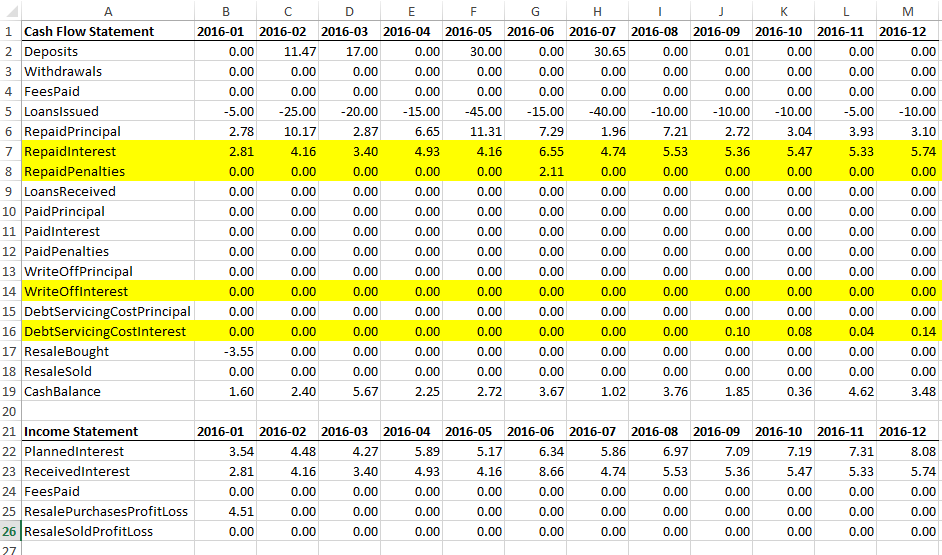The strength of marketplace lending is that it brings people together. As our base of investors and borrowers grows the two groups can learn from each other. In keeping with this spirit we created a brief survey at Bondora about investment taxation.
We reached out to investors from countries that are most representative of our customer base. These experienced investors shared their understanding of the complex laws regarding marketplace investment income and how it’s taxed. In this post we’re sharing a summary of the answers we received. Please remember, these answers do not constitute official advice and the information is not from professionals. These are just survey results from Bondora users. We want to help develop an outline of the laws and regulations investors may want to consider as they prepare to seek professional advice.
We asked the following:
- What kind of income needs to be declared – Earned interest and secondary market capital gains?
- Can you offset losses against earned interest?
- When is the deadline for submitting the declaration?
Please see the below chart. The numbers 1, 2 and 3 correspond to the above questions.
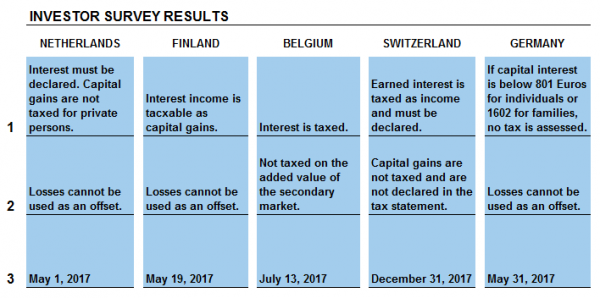
How to find information on your earned income on Bondora
REPORTS – Tax Report PDF
Go to the Reports page, choose the period and click on the PDF icon. The Tax Report will be created for you immediately. On the Tax Report PDF the most relevant rows are “Interest Received” and “Interest Repaid from Loans in Default”. Total interest received is the sum of the two.
If you want to know the earned capital gains from Secondary Market trading, the relevant values to look at are “Profit from secondary market sales”, “Profit from secondary market purchases”, “Losses from secondary market sales” and “Losses from secondary market purchases”.
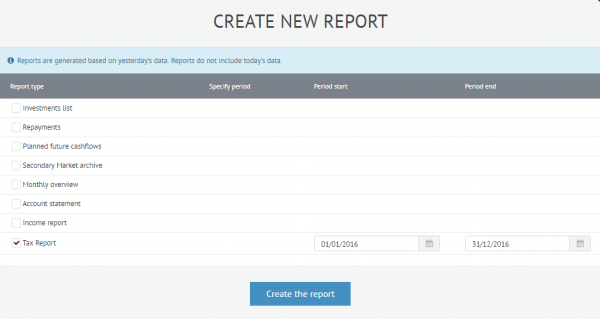
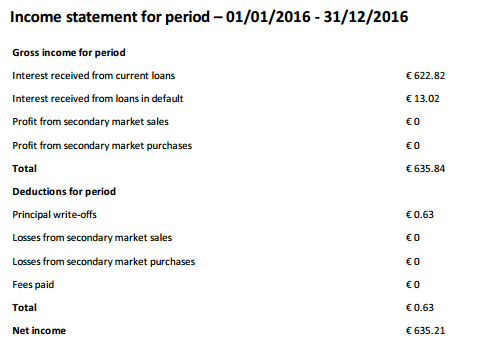
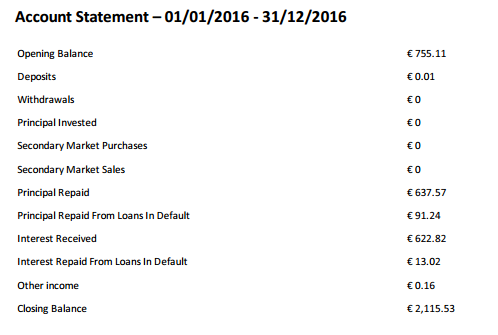
REPORTS – Monthly Overview
The second option is look at the Monthly Overview report in the Reports page. Click on “Create new report” and check “Monthly overview” and choose your period. The relevant rows for you are “Repaid Interest”, “Repaid Penalties”, “WriteOffInterest” and “DebtServicingCostInterest”.
